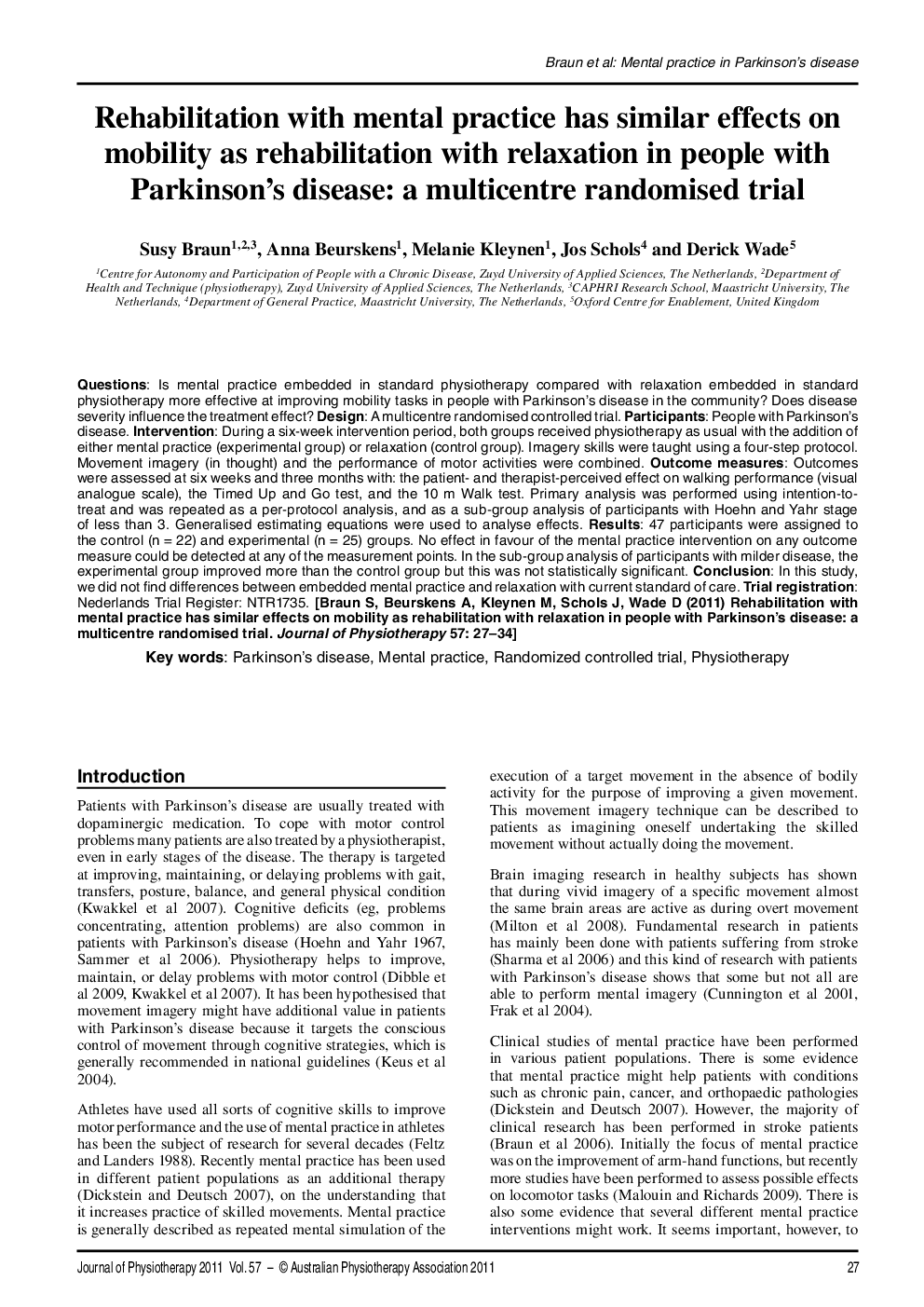| Article ID | Journal | Published Year | Pages | File Type |
|---|---|---|---|---|
| 2622503 | Journal of Physiotherapy | 2011 | 8 Pages |
QuestionsIs mental practice embedded in standard physiotherapy compared with relaxation embedded in standard physiotherapy more effective at improving mobility tasks in people with Parkinson's disease in the community? Does disease severity influence the treatment effect?DesignA multicentre randomised controlled trial.ParticipantsPeople with Parkinson's disease.InterventionDuring a six-week intervention period, both groups received physiotherapy as usual with the addition of either mental practice (experimental group) or relaxation (control group). Imagery skills were taught using a four-step protocol. Movement imagery (in thought) and the performance of motor activities were combined.Outcome measuresOutcomes were assessed at six weeks and three months with: the patient- and therapist-perceived effect on walking performance (visual analogue scale), the Timed Up and Go test, and the 10 m Walk test. Primary analysis was performed using intention-totreat and was repeated as a per-protocol analysis, and as a sub-group analysis of participants with Hoehn and Yahr stage of less than 3. Generalised estimating equations were used to analyse effects.Results47 participants were assigned to the control (n = 22) and experimental (n = 25) groups. No effect in favour of the mental practice intervention on any outcome measure could be detected at any of the measurement points. In the sub-group analysis of participants with milder disease, the experimental group improved more than the control group but this was not statistically significant.ConclusionIn this study, we did not find differences between embedded mental practice and relaxation with current standard of care.Trial registrationNederlands Trial Register: NTR1735.
